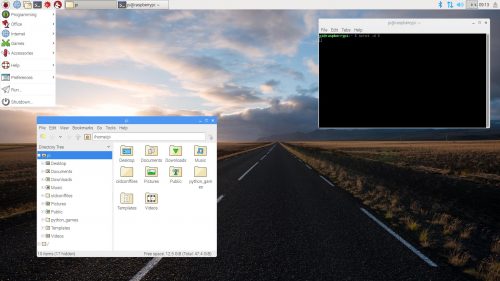Pixel Run Mac OS
With the underlying concept popularized by Stadia and other game services, Mighty wants to stream an entire Chromium browser from the cloud. The effort emerged this week after two years of development with a tagline of “Make Chrome Faster.”
Float rulers above other applications (press F to toggle). Move windows independently or as a group (press G to toggle). Show or hide the shadow behind rulers (press S to toggle). Align rulers at mouse location (press O for origin). Reset ruler locations with Command-R. Download the latest version from GitHub or the Mac App Store. The screenshots following will be on a Mac OS X computer, but the same idea goes for Windows as well. Click a screenshot to expand. Get the Technic Launcher: This pack is used to install and play many modpacks easily, such as Tekkit, or Feed the Beast.
How to install and run Mac OS VM on Linux with 1 click installer. LINKS sosumi github SHOP Novaspirit Shop.
Mighty wants to address the often-heard complaint that Chrome is slow. Over the past few releases, Google has been working to address this through various techniques and optimizations, but this new company’s approach is to stream “your browser from a powerful computer in the cloud.”
Over the last two years, Mighty designed a custom server to “keep costs low,” built a low-latency networking protocol, and forked Chromium to “integrate directly with various low-level render/encoder pipelines.” The browser also “interoperates” with macOS features and all demos today are on Apple devices. The baseline internet speed mentioned on the launch post today is 100Mbps. For comparison, Stadia in 4K requires 35Mbps or greater.
The company originally set out to stream Windows, which would have been similar to Shadow.tech, but eventually opted for just a browser, given how the “OS is becoming increasingly irrelevant as we near the end of a multi-decade shift from desktop to web apps.”
When we first started Mighty, our plan was to stream Microsoft Windows. But after talking to users we learned that they were using their browser most of the time and what they really needed was a faster browser:
Meanwhile, Cloudflare last year announced a Browser Isolation beta where browsing sessions similarly run in sandboxed data centers. However, the approach differs by just sending the final output of a browser’s web page rendering (draw commands) instead of “streaming pixels to the user.” Besides being more data efficient, it’s compatible with any HTML5 browser.
Each browser instance is powered by “16 vCPUs” running on dual Intel Xeon processors that clock up to 4GHz, Nvidia GPUs, and 16GB of RAM. This cloud implementation is said to let you load anywhere from “50+” to “hundreds of tabs without it stalling, freezing, and slowing down your computer,” while also speeding up renders for graphics-intensive workloads, like Figma.
You install a thin client on macOS that locally uses “10x less memory than Google Chrome” — specifically no more than 500MB of RAM — because you’re just streaming and interacting with a video window. The cloud browser runs at 4K and 60 frames per second, with Mighty promising that you “won’t feel lag while typing, moving your mouse, or scrolling.”
As a Chromium fork, the UI is relatively unchanged from Chrome while a number of custom shortcuts have been implemented, like option + tab to move between open pages and command + M to search Google Drive.
On the privacy front, “keystrokes are encrypted over the wire when being sent” to the hosted cloud machine. Mighty says everything from cookies to your browsing history is kept private and will “never be sold.” The company will have a third-party audit its code and infrastructure yearly.
You can “request access” today by filling out a form, while pricing looks to be $30 per month.
FTC: We use income earning auto affiliate links.More.
Bored of running Chrome OS on your Acer C720 Chromebook? Want to turn it into a ‘hackintosh’ Mac Laptop?
Well, now you can.
Pixel Run Mac Os 11
CoolstarOrg, a genius at getting other OSes up and running on Chrome OS hardware, has written a detailed guide on how owners of the Acer C720 can install Mac OS X 10.11 ‘El Capitan’ on their Chromebook.
A timely “hackintosh” report, all told. It was just over a year ago that we reported on CoolStar’s effort to get OS X 10.9 Mavericks up and running on an the exact same Chromebook.
Sure, there are caveats and practicality issues, but it’s a great case of “…because why not?”. Chromebooks are basic Intel-based PCs: they can run Linux, they can run Windows, so it’s no surprise that they can also run Mac OS X.
El Capitanbook
Raspbian Pixel Os
You will need an Acer C720 with an Intel Core i3-4005U and 4 GB RAM to follow along, as this chipset is the one most compatible with OS X (requiring only a few minor tweaks).
Pixel Run Mac Os Catalina
You’ll also need a a user-upgraded 64 GB (or higher) SSD and a legit copy of Mac OS X 10.11 El Capitan ready to boot from a USB.
Don’t expect miracles once you’ve jumped through the required hoops, either. Trackpad scrolling is described as “poor and choppy”, and hackintoshers report patchy Wi-Fi issues.

Check out Coolstar’s full guide over on Reddit, and bookmark this page of his website for further details.
[Guide] Install OS X 10.11.5 El Capitan on Acer C720 Chromebook from chrultrabook